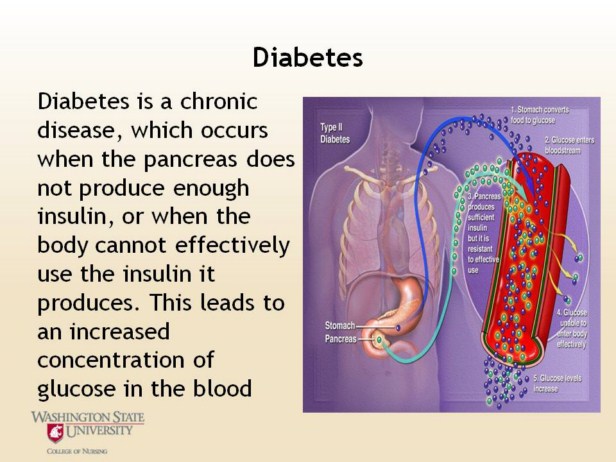| front |1 |2 |3 |4 |5 |6 |7 |8 |9 |10 |11 |12 |13 |14 |15 |16 |17 |18 |19 |20 |21 |22 |23 |24 |25 |26 |review |
 |
Diabetes is a chronic disease caused by a problem in the way your body makes or uses insulin.
Insulin, which is needed to move blood sugar (glucose) into cells, where it is stored and later used for energy.
When you have type 2 diabetes, the body does not respond correctly to insulin. This is called insulin resistance. Insulin resistance means that fat, liver, and muscle cells do not respond normally to insulin. As a result blood sugar does not get into cells to be stored for energy.
When sugar cannot enter cells, abnormally high levels of sugar build up in the blood. This is called hyperglycemia.
High levels of blood sugar often trigger the pancreas to produce more and more insulin, but it not enough to keep up with the body's demand.
People who are overweight are more likely to have insulin resistance, because fat interferes with the body's ability to use insulin.
Reference: http://diabetes.niddk.nih.gov/dm/pubs/overview/#what Image used with permission of AllRefer Health http://health.allrefer.com
http://listverse.files.wordpress.com/2007/10/diabetes-type2.jpg |